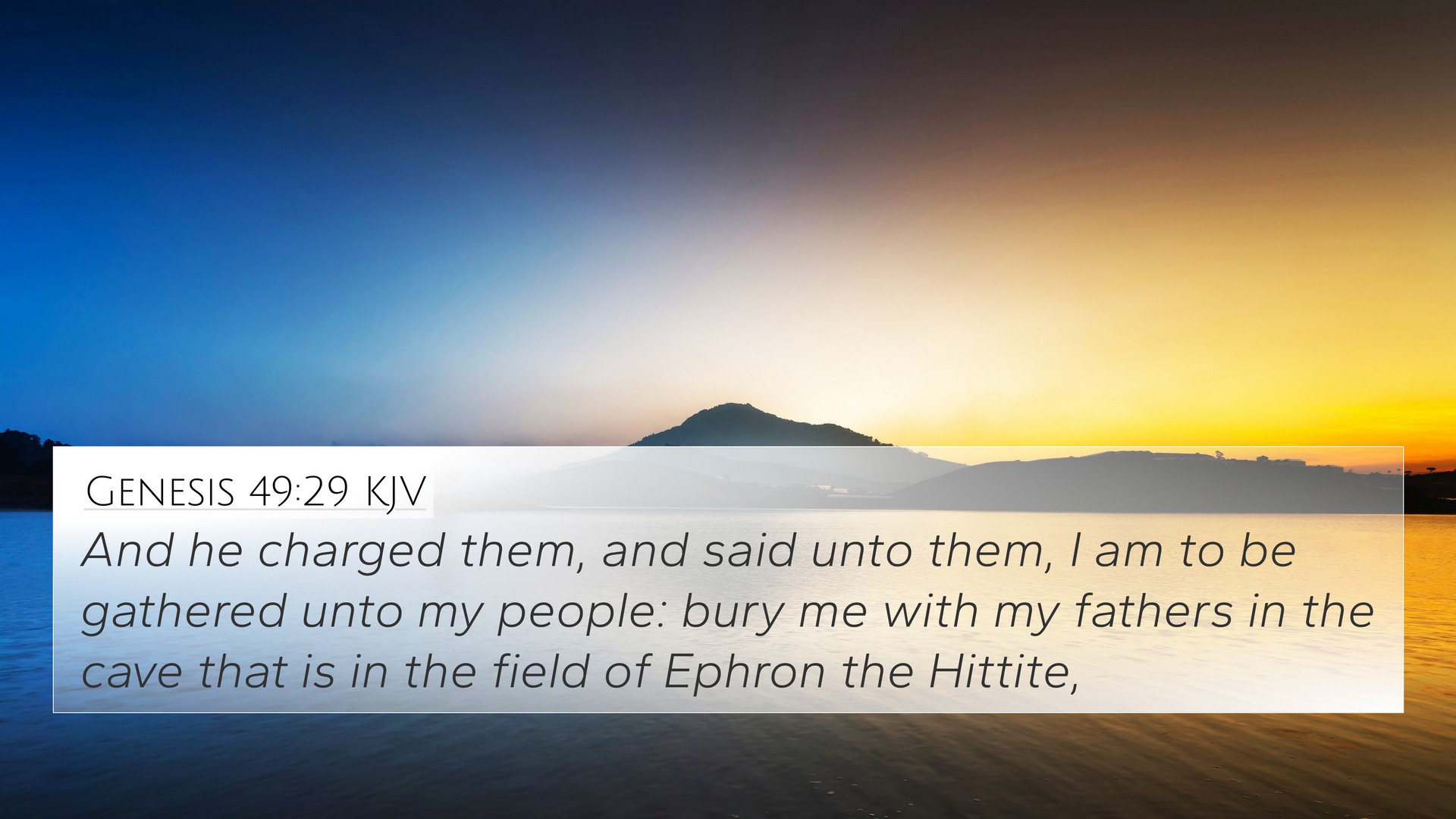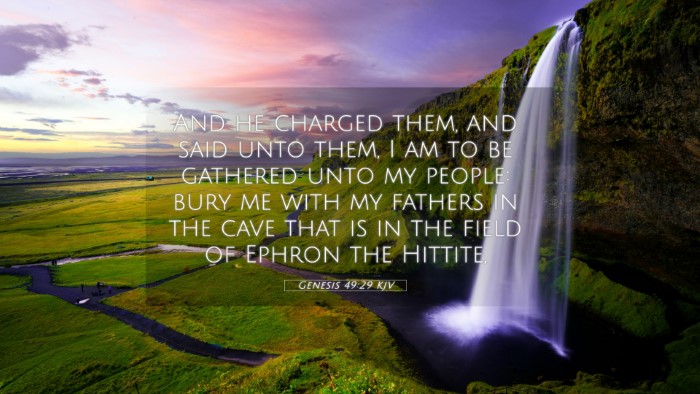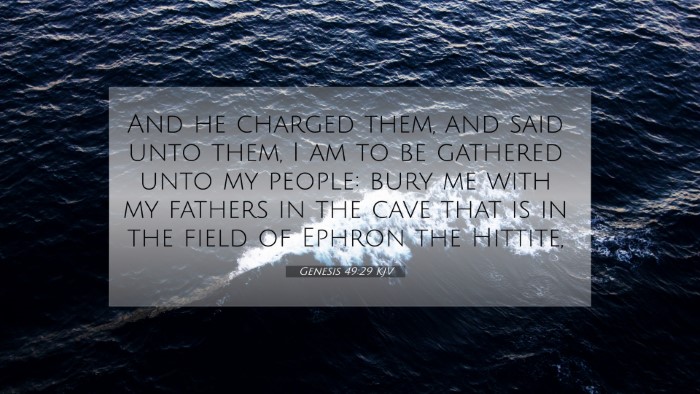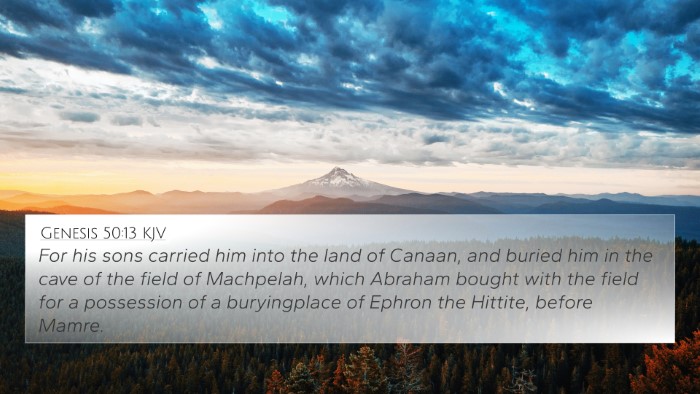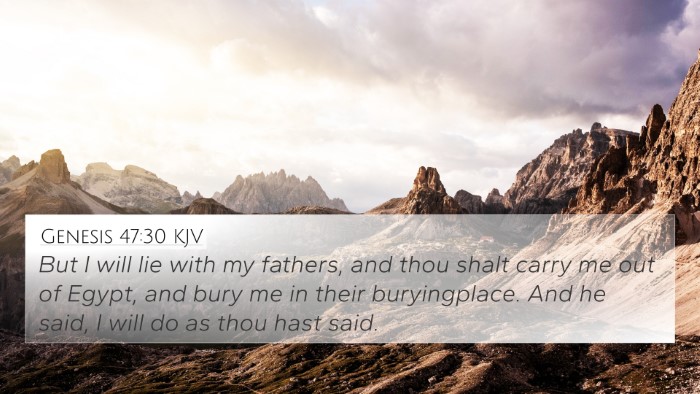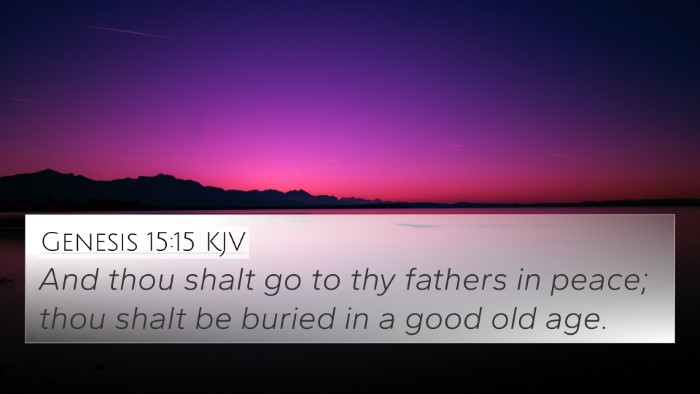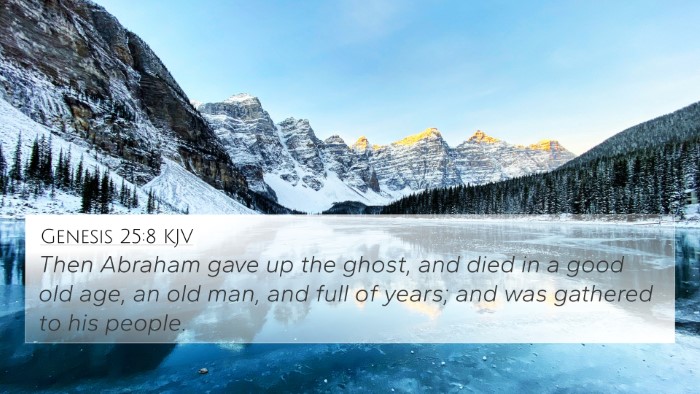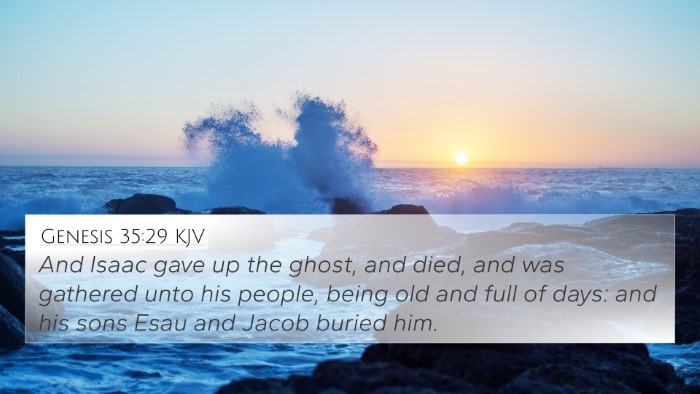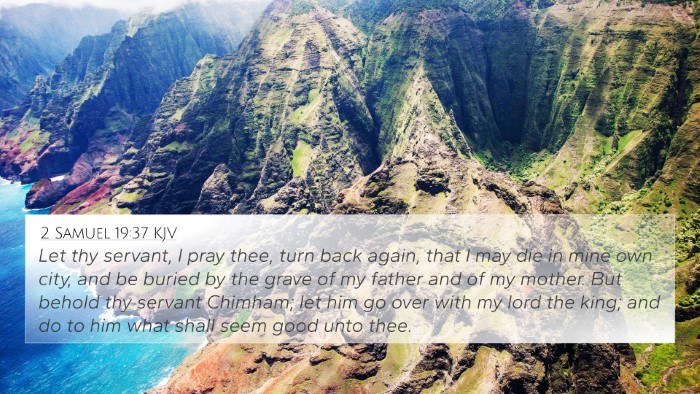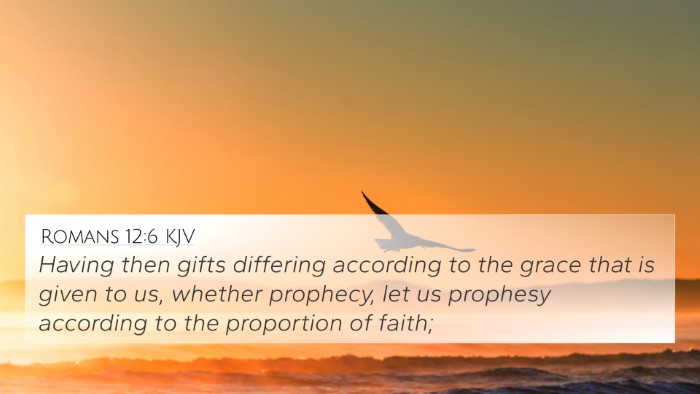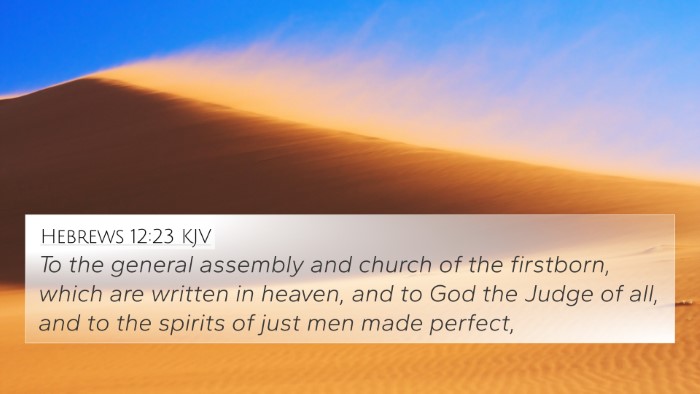Understanding Genesis 49:29
Genesis 49:29 states, "Then he gave them these instructions: 'I am about to be gathered to my people. Bury me with my ancestors in the cave in the field of Ephron the Hittite.' This verse concludes Jacob's blessings upon his sons as he prepares for his impending death. It serves as a poignant moment filled with emotional significance and practical instructions regarding his burial.
Summary of the Verse’s Meaning
The verse captures Jacob's final wish and highlights several theological and moral aspects that are key in the narrative of the Israelite heritage. Jacob's request for burial in the family tomb signifies a desire for unity with his ancestors and an everlasting connection to the covenant made with God concerning the land of Canaan.
Insights from Public Domain Commentaries
-
Matthew Henry:
Henry emphasizes the significance of Jacob's desire to be buried with his ancestors, recognizing it as a profound acknowledgment of the covenantal promise of God regarding the land. He notes that Jacob's faith in God's promise extends beyond death, showcasing the importance of familial bonds and the hope of resurrection.
-
Albert Barnes:
Barnes highlights the specific location chosen for Jacob's burial, explaining that it represents a fulfillment of God's promise. He also interprets Jacob's gathering to his people as a reference to the afterlife, suggesting that Jacob is conveying a message about faith and hope in what lies beyond mortality.
-
Adam Clarke:
Clarke provides insight into the cultural practices of the time regarding burial and the importance of being interred in one's homeland. He notes how Jacob's instructions reveal his deep commitment to his lineage and the worship of the God who promised them the land.
Cross-References to Genesis 49:29
- Genesis 23:19: Abraham's purchase of the cave in Machpelah as a family burial site, signifying the importance of proper burial places.
- Genesis 35:29: Jacob being gathered to his people similar to Isaac's death, emphasizing familial relationships.
- Genesis 50:13: The description of Jacob's burial, further portraying the fulfillment of his wishes.
- Hebrews 11:9-10: The faith of the patriarchs who looked forward to the promise of the land.
- Exodus 13:19: Joseph's instructions regarding his bones, indicating that burial was tied to a promise of deliverance from Egypt.
- Acts 7:15-16: A recounting of the burial of Jacob and Joseph in Shechem, relating to the historical significance of their final resting place.
- Matthew 8:11: A reference to dining with patriarchs, showcasing the continued relevance of the ancestors.
Thematic Connections
Genesis 49:29 serves as a central verse in understanding the broader narrative of Israel's connection to their land and ancestors. This theme can be approached through the lens of:
- Faith in God's Promises: The remembrance of God's covenant with Abraham, Isaac, and Jacob.
- Familial Legacy: The significance of family ties and the responsibilities of passing down traditions.
- Hope and Resurrection: The anticipation of afterlife and eternal rest with loved ones.
Practical Applications
Understanding Genesis 49:29 highlights several practical applications for contemporary believers:
- Importance of Legacy: Reflecting on how one wishes to be remembered and the values imparted to future generations.
- Covenant Relationship with God: Understanding one's identity in the context of God’s family.
- Preparation for Death: Encouraging thoughtful consideration regarding end-of-life wishes and practices.
Conclusion
Genesis 49:29 is more than just a burial instruction; it is a profound statement about identity, faith, and continuity. By examining this verse through cross-referencing and thematic analysis, one can appreciate the intricate connections within the fabric of Biblical theology. Exploring these elements allows a deeper understanding of God's faithfulness, our familial ties, and the hope we hold for the future.
